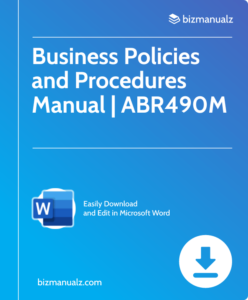How to Collect a Past Due Invoice

Collecting past due invoices is crucial for businesses. Delayed payments can disrupt operations, hinder growth, and lead to bad debt. Promptly addressing outstanding invoices shows professionalism and establishes credibility. By actively following up on overdue payments, friction can be minimized and client partnerships strengthened. Failing to prioritize collecting invoices can lead to revenue loss, hamper daily operations, and jeopardize future success. How to collect a past due invoice.
Guiding Collect a Past Due Invoice
Diligent invoice management helps businesses stay organized and effectively monitor accounts receivable. It allows them to identify patterns, analyze reasons for delays, and take appropriate action. Regular follow-ups act as reminders and illustrate the importance of fulfilling financial obligations promptly.
Starting conversations about unpaid invoices in a respectful manner can provide insights into any challenges faced by clients that caused the delay. This empathetic approach fosters understanding and collaboration while finding solutions that benefit both parties. Emphasizing the value of timely payments reduces miscommunication and preserves long-term relationships.
To ensure payment collection, it is essential to establish payment terms upfront with all clients. Setting expectations regarding due dates empowers businesses to manage finances proactively and avoid confusion or disputes. Efficient invoice management systems or accounting software can streamline processes and facilitate communication with clients throughout the payment cycle.
Understanding the reasons behind unpaid invoices
One common cause of unpaid invoices is customers facing financial difficulties. Economic downturns or unexpected bills can strain their cash flow, resulting in late payments. Businesses must understand this and offer flexible payment plans or other solutions, like installment options.
Another reason for unpaid invoices may be customer dissatisfaction. If they’re not happy with the quality of goods or services, they may withhold payment until the issue is resolved. To prevent further delays, businesses should promptly address these concerns and communicate openly.
Customers may also forget or neglect to pay. Invoice reminders and follow-up processes can help ensure prompt resolution.
A 2019 Dun & Bradstreet study showed that late payments have a big effect on small businesses’ cash flow. On average, they wait 39 days beyond their terms before customers pay.
Businesses must tailor their debt collection strategies according to the reasons behind unpaid invoices. This includes offering payment flexibility, resolving disputes quickly, and implementing efficient reminder systems. Proactive measures and understanding customer circumstances can help collect past due invoices and maintain financial stability.
Preparing for the collection process
- Review the Invoice: Thoroughly check for anything that may have caused non-payment. Make sure all info is accurate.
- Contact the Debtor: Reach out to them, preferably in writing. Clearly state the amount owed, the due date, and any late fees or penalties. Keep a record of all communication.
- Establish Payment Terms: Discuss potential payment arrangements. Offer flexible options if appropriate. Both parties must agree and document it in writing.
- Send a Demand Letter: If initial attempts don’t work, send a formal letter via certified mail or email. State intentions to pursue legal action if payment isn’t made.
- Seek Professional Help: If all fails, consider hiring a debt collection agency or consulting with a debt recovery attorney.
- Document Everything: Maintain records of all interactions, payments, and actions taken. This will be essential if legal action is needed.
- Communicate Clearly: Use simple language when talking about payment matters. Don’t use jargon or technical terms.
- Stay Persistent: Follow up regularly with reminders about payments. Be respectful.
- Be Flexible: Depending on the debtor’s situation, consider offering payment options or settling.
- Maintain Professionalism: Keep a professional demeanor even when faced with resistance or hostility. This preserves your reputation and increases chances of a good resolution.
Communicating with the customer
When it comes to communicating with customers about past due invoices, it’s vital to stay professional and informative. Here are some key tips:
- Be explicit and clear: State the purpose of your message and provide all necessary details.
- Pick the right channel: Determine which method of communication is best to reach the customer – email, phone call or meeting.
- Be sympathetic: Understand that there may be reasons for delay in payment and listen to their concerns.
- Create a timeline: Specify when payment is expected and discuss potential consequences if not paid on time.
It’s essential to remember that each customer is unique. Be professional yet understanding of their individual circumstances.
To illustrate this point, here’s an example. A small business owner had trouble collecting payments from an old client. After unsuccessful attempts to contact them via phone and email, they decided to meet in person.
The conversation was open and honest. They revealed the client’s underlying reasons for delay in payment. By understanding each other and working together, they agreed on a revised payment plan.
Effective communication is key when dealing with past due invoices. Be professional and consider individual circumstances to find a resolution that suits everyone.
Escalating the collection efforts
As an entrepreneur, it’s key to take steps towards gathering past due invoices. Follow these 5 steps for rising collection efforts:
- Organize: Keep tabs on invoices and payment due dates in a good system.
- Send a reminder: Contact customers with a polite and friendly reminder of their overdue payment. Clearly state the amount due and provide payment options.
- Call: If the reminder is missed, call. Be assertive, yet kind, while discussing the unpaid invoice.
- State consequences: Explain the consequences of not paying, like late fees or reporting to credit bureaus. This may push the customer to act quickly.
- Seek help: If nothing else works, consider a collections agency or legal help to get the unpaid amount.
Having good communication and persistence are essential for increasing collection efforts. Also, staying on good terms with customers can help prevent such situations in the future. Act fast and secure what you deserve! Do something today before it’s too late!
Legal considerations and best practices
- Know your rights as a creditor.
- Be aware of laws and regulations in your jurisdiction.
- Understand the financial state of the debtor.
- Communicate clearly.
- Offer flexible payment options.
- Keep detailed records.
- Seek help if needed.
One case example:
A small business owner faced an overdue invoice from a client. They sought legal guidance and followed best practices. They recovered their payment and kept the relationship professional.
Resolving the issue and maintaining customer relationships
Resolving payment issues? Crucial. Showing professionalism and commitment? Yep – by addressing past due invoices quickly. Effective communication, flexible payment options and mutually beneficial solutions? Key for resolving the issue without a hitch.
Communication is essential – keep an open line of dialogue. That way you can understand the customer’s perspective and address concerns. This approach not only resolves the issue, but strengthens trust too.
Flexible payment options? Super helpful. Offer alternatives like installment plans, or adjusting payment due dates – this shows willingness to accommodate the customer’s finances. It’ll also help maintain a positive relationship.
Negotiating mutually beneficial solutions? It can assist in collecting overdue payments without damaging the customer relationship. Offer discounts or incentives for early payment, or come up with a revised payment plan. By finding common ground, you’ll ensure timely invoice collection and demonstrate commitment to working together.
According to Dun & Bradstreet, maintaining positive relationships with customers reduces overdue invoice amounts by up to 32%. This highlights how important it is to resolve payment issues – for both financial stability and customer satisfaction.
Collect a Past Due Invoice
Accurate record-keeping is a must for effective invoice management. Companies can keep track of payments and follow up on overdue payments quickly. This saves time, avoids misunderstandings with customers, and having to write-off bad debt.
Communicating clearly is important too. When sending invoices, companies should include all relevant details. This sets expectations and reduces the risk of payments being late or disputed.
Automated reminders are helpful. Friendly reminders a few days before payment due dates give customers a gentle nudge to pay. This saves time for businesses to do other things.
Flexible payment options are helpful too. Offering multiple payment methods, like online platforms or electronic transfers, increases convenience and encourages payments.
Frequently Asked Questions
 1. How can I politely remind a customer about a past due invoice?
1. How can I politely remind a customer about a past due invoice?
Answer: When reaching out to remind a customer about a past due invoice, it is best to maintain a polite and professional tone. Start by sending a friendly reminder email or making a polite phone call to discuss the outstanding payment. It is important to clearly state the amount due, the due date, and any late fees or consequences associated with non-payment.
2. What should I do if a customer ignores my reminders and the invoice remains unpaid?
Answer: If a customer continues to ignore reminders and the past due invoice remains unpaid, it may be necessary to take further action. This could involve sending a formal demand letter, enlisting the help of a collections agency, or taking legal action. It is advisable to consult with a lawyer or seek professional advice before proceeding with any legal action.
3. Can I charge interest for a past due invoice?
Answer: Yes, you can charge interest for a past due invoice as long as you have specified this in your original agreement or contract. Make sure to clearly outline the interest rate and any late payment penalties in your terms and conditions or payment terms. It is also recommended to communicate this to the customer in advance before issuing the invoice.
4. Should I offer a payment plan for customers struggling to pay a past due invoice?
Answer: Offering a payment plan can be a helpful option for customers who are struggling to pay a past due invoice. This allows them to make smaller, more manageable payments over an extended period of time. However, it is important to ensure that both parties agree on the payment plan terms, and to clearly document the arrangement in writing.
5. Can I send a past due invoice to a collection agency?
Answer: Yes, you can send a past due invoice to a collection agency for assistance in recovering the payment. It is advisable to research and choose a reputable collection agency with experience in your industry. Before involving a collection agency, make sure to review your rights and obligations as well as any applicable laws or regulations.
6. What can I do to prevent future past due invoices?
Answer: To avoid future past due invoices, consider implementing the following measures: – Clearly communicate payment terms and due dates to customers upfront. – Send timely reminders as the due date approaches. – Offer various payment options for customer convenience. – Establish a consistent invoicing system. – Maintain open lines of communication with customers, allowing them to address any concerns or issues promptly.
















Leave a Reply